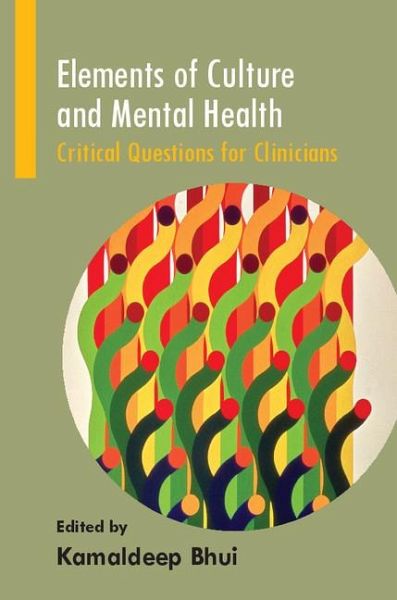
Elements of Culture and Mental Health
Versandkostenfrei!
Versandfertig in 1-2 Wochen
27,99 €
inkl. MwSt.

PAYBACK Punkte
14 °P sammeln!
It is not enough for mental health professionals to make best use of the evidence base; they must also ensure that interventions are culturally appropriate, acceptable and ethical. This is a very complex task - to work with culturally diverse populations who may not expect the same sort of treatments or interventions or even assessment processes as the cultural majority. How can professionals work confidently with people from diverse cultural backgrounds, engage with the emotional and professional demands, and be more creative about how to improve the quality of care and the take up of care? T...
It is not enough for mental health professionals to make best use of the evidence base; they must also ensure that interventions are culturally appropriate, acceptable and ethical. This is a very complex task - to work with culturally diverse populations who may not expect the same sort of treatments or interventions or even assessment processes as the cultural majority. How can professionals work confidently with people from diverse cultural backgrounds, engage with the emotional and professional demands, and be more creative about how to improve the quality of care and the take up of care? This short volume, developed by service users, practitioners, teachers and researchers, aims to address this issue. Each chapter is a concise, thought-provoking, engaging and creative essay about a clinical scenario that is central to improving the quality of care to culturally diverse populations. The scenarios are common, and the essays set out beautifully some of the obstacles to improving care, dilemmas facing the clinician, and how they might be overcome.














